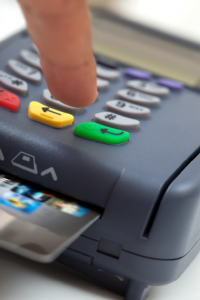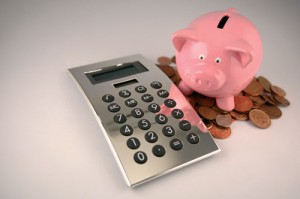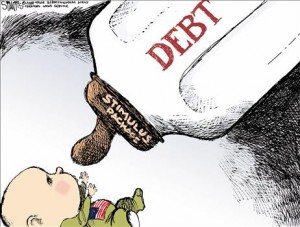July 24, 2012
 Saving money on your car isn’t all about travelling less and using other means to get about, it’s also about how you drive and reaping the rewards from converting your driving style to combat the rising fuel costs.
Saving money on your car isn’t all about travelling less and using other means to get about, it’s also about how you drive and reaping the rewards from converting your driving style to combat the rising fuel costs.
Buying an economical car is also a great first step, one that offers a great return on miles per gallon, whether it be a hybrid, a modern diesel or EV vehicle. However, they won’t be any good to you if you’re driving them in the incorrect fashion.
The general idea of economical driving is to do everything smoothly and gently, accelerating without excessive force and reading the road ahead to avoid unnecessary heavy braking. Slowing the car down smoothly is also imperative, whilst also leaving the car in gear.
Reading the road also gives you enough time to slow down without the need to stop, as stop-starting will use up more fuel and instead it’s advisable to keep the car rolling for as long as possible.
Some modern cars will allow you to make use of an indicator of when to change gear, another important factor in driving economically. Changing gear at the correct time is vital when saving fuel, as over revving a car’s engine will use up more petrol or diesel and the general rule is to keep the revs below 2,500 in most vehicles.
Gadgets in the car are also powered by the car’s fuel reserves when the engine is turned on and turning off things like air conditioning, rear window heaters, demisters and headlights when it’s not necessary to have them in use will help bring down fuel costs.
Additional elements to saving fuel can come from making sure you’re maintaining the car in the proper manner and frequently. Getting the vehicle serviced, checking/changing the oil and making sure tyres are inflated to their required amount are very important.
Cars tend to be getting lighter each time they’re redesigned, but making sure you’re not carrying any unnecessary weight will also help you cut down costs, as will having the car streamlined as much as possible, so removing roof-racks when not in use will reduce resistance and drag.
Tags:
budgeting,
Cars,
Cash Flow,
Costing,
financial planning,
money
July 23, 2012
 There’s always at least one time in someone’s life when, with payday more than a week away, they find themselves a little short of cash. Not knowing what to do when it becomes hard to pay your next electricity bill or even for emergencies such as fixing a broken fridge, it can be hard to know who to turn to for help. To some people, it might seem like little more than a last resort, but taking out a fast little loan could make up any shortfall in income.
There’s always at least one time in someone’s life when, with payday more than a week away, they find themselves a little short of cash. Not knowing what to do when it becomes hard to pay your next electricity bill or even for emergencies such as fixing a broken fridge, it can be hard to know who to turn to for help. To some people, it might seem like little more than a last resort, but taking out a fast little loan could make up any shortfall in income.
If you find yourself unable to get a loan or overdraft from your bank, and are worried about waiting for any money to come through, taking a payday loan out might represent your best chance of plugging that momentary gap in your finances. However, if you’ve never taken one out before and want to know what to do if you decide to go with it, what are the do’s and don’ts of payday loans?
One thing you should do is know how much you need. With payday loans, all you need to do is borrow the exact amount needed for whatever expense you have to meet. By doing this, you’re not taking too much and you won’t have to pay as much in interest when the time comes to paying it back in full. Once you’re sure of how much you need, try to borrow that amount: no more, no less.
Next, you should do a little research into how payday loans work. There are many providers such as Wonga.com where you can find out how you can take them out, how long the waiting period is before the money enters your bank account and how to repay them. It’s also worth looking into the level of interest you have to pay on such loans, as finding that out will help you budget for interest payments on top of the money you need to pay back to the lender.
Finally, it pays to shop around when looking for a payday loan. When searching for a payday loans alternative, you’ll want the best deal when it comes to waiting periods, interest rates, repayment windows and, most importantly of all, the amount you can actually borrow. If you find the right deal, then feel free to try and take a loan out with them, and pay it back at a time that suits you.
Tags:
budgeting,
cash,
Cash Flow,
debt,
economy,
financial planning,
Interest Rates,
loans,
money,
Paysay Loans,
personal finance
July 10, 2012
 If you have several credit cards that you use frequently you may find yourself with an unexpected charge or a late charge because you are not aware of a change in one or all of your credit card provider’s policies or charges. A single late fee or an added service charge can cause you unneeded and unnecessary credit problems.
If you have several credit cards that you use frequently you may find yourself with an unexpected charge or a late charge because you are not aware of a change in one or all of your credit card provider’s policies or charges. A single late fee or an added service charge can cause you unneeded and unnecessary credit problems.
Credit data is not just a matter of your current balance and available credit. You need to have current updates about your APR (Annual Percentage Rate) changes to your APR, due date for new charges to your cards, late fee charges, credit limit changes, deposits, and due dates for each card you have and use.
This information can help you avoid extra unnecessary late fees and keep you advised of what you Credit Card Company is doing to make money using you as their source of income.
Businesses need credit data like the number of transactions per day, payment due dates, alerts to high transactions, and an up to the minute transaction summary with details to manage their cash flow and insure profitability.
Individuals and businesses need a single website to go to check all their credit cards and get all the unique credit card data they need to know for every credit card they own and use. You need credit card data provided to you that is timely and fresh and provides you with all the information you need to make informed choices and avoid paying extra fees that you do not know are coming.
Credit data like new bill notification, bill due notification, balance limit near 80 percent, balance limit near 90 percent, and balance limit breached can alert you to take action that saves you money.
APR rates can change on a daily basis and a surprise change in APR can wreck even the most carefully planned budget.
Fresh credit card data updated on a weekly basis that covers every major credit card and all the credit card data you need to know to keep your credit card from causing you a credit problem or even a bad mark on the big three credit reporting agencies is essential.
If you own or use several different cards finding all the credit data you need to manage your credit cards successfully can be a real chore if you have to look at every card site individually and hunt for the data you need. Most credit card companies are really good at hiding the information. They have a reason. The reason is making money from you.
One place you can go to get all the credit card data you need to make informed choices with up to date information is pageone.com. You will find all the major credit cards with an easy to understand updated listing of all the credit card data you need to manage your credit cards to your advantage. This is the only site on the Internet that provides all the data you need for your individual or business credit card accounts. This assessment is based on pageonce.com user statistics.
Knowing and using credit card data intelligently has many advantages
Knowing when a bill is due has several advantages. You avoid late fees of course but there is more. You can time the payment of you bills so that you maximize the amount of interest your money makes in your checking or savings account. Paying a bill at the very last minute means credit card companies do not get to use your money to make money. You get to use your money to make money.
Knowing when bills are due and how close you are to your credit limit keeps you from going over your credit limit. One late fee can change the APR and the credit limits on every card you have as soon as a credit reporting agency updates your file with a let charge and spreads the news to every credit card company you have a card with.
Knowing when a change in fees, APR, and charges has occurred with your credit card puts you ahead of the curve compared with most people. This means no surprises on your next credit card bill and no paying extra fees.
Credit card companies want your money from added fees but you do not have to ever pay a surprise fee again. You just need to have a timely adviser that lets you know when new fees and charges have occurred.
Tags:
Bills,
budgeting,
Caredit Cards,
credit,
financial planning,
money,
savings
July 1, 2012
 Using the term “budgeting” can sometimes be off-putting because people think it’s a way to deprive them of something. Budgeting is actually a way to find out how much money you need for living expenses so that you can control how your pay is used and have something to set aside. Here are a few effective budgeting strategies you can use to meet your financial goals.
Using the term “budgeting” can sometimes be off-putting because people think it’s a way to deprive them of something. Budgeting is actually a way to find out how much money you need for living expenses so that you can control how your pay is used and have something to set aside. Here are a few effective budgeting strategies you can use to meet your financial goals.
Tip #1: Record everything
You may list down your essential expenses like utility bills and insurance payments, but do you also record the smaller ones, like the little purchases at the convenience store or even your vending machine jaunts? Remember, these seemingly trivial expenses do add up, and they can mess up your budget. The trick is to keep all your receipts and write everything down, so that when you work on your budget, it’s accurate, down to the last cent, allowing you to better manage how your hard-earned income is spent.
Tip #2: Select your platform
If your finances are really simple, then maybe a pencil and paper are all you need to plan your expenses. However, if your budget is a bit more involved, you’d need a platform that can make things easier for you. For instance, you can use spreadsheets to map out your budget from scratch or download templates for something more specific.
You can also look for online personal finance services like ClearCheckbook and Money Strands or any other similar websites. Such services have useful budgeting features like generating a spending plan and chequebook balancing.
Tip #3: Spend less than you earn
All your efforts at budgeting would be ineffective if your expenses are larger than your income. What you need to do is spend less than what you earn. Take note that if you use up more than your income, you will accumulate debt. If your income and expenses are pretty much equal, you need to spend less or earn even more. If this is the case, go for spending less it’s much easier than getting a second job. Spending less than your income allows you to accumulate wealth.
Tip #4: Pay yourself first
Think of putting money in savings like a bill to be paid to yourself. Indicate the savings as part of your budget and withdraw it before spending your funds on bills, groceries or any other expenses. See to it that you deposit your savings budget immediately in a separate account so that you won’t mistakenly spend it. If possible, set up a way for your savings to be deducted automatically from your salary. You won’t even realise you’re accumulating wealth.
Tip #5: Reduce entertainment expenses
There’s probably an allotment for “entertainment” in your budget, which could cover expenses like watching a movie, going on dates or even buying video games. Play close attention to these costs because it might cause you to overspend. To reduce entertainment expenses, consider:
- Getting bundled packages for phone, television and internet service.
- Borrowing audio books, movies and even video games from public libraries.
- Visiting free art exhibits or movie festivals for dates.
Tip #6: Prepare your own meals
It’s more expensive to eat out than to prepare your own meals. Consider that having a meal for two people at a mid-priced restaurant would cost around AU$77 to AU$80. Groceries for two people, on the other hand, would cost around AU$150 to AU$200 per week. You can eat at inexpensive restaurant (i.e. fast food) to save on costs, but that’s not good for your health. To save money on food, learn to cook healthy meals. That way, you cut down dining out costs and possible doctor visits.
Tip #7: Overestimate when allotting funds
If you’ve been budgeting for a while, then you probably know that many expenses have variable costs due to fluctuating prices. To prepare your budget for this unpredictability, look over the last year’s worth of receipts/bills and pick the most expensive you ever paid as your guide until an increase is announced. Here’s another tip: When allotting your funds, make sure you don’t use the exact figure. Instead, round off to the higher number, so that you won’t be short on funds.
Tags:
budgeting,
economy,
financial planning,
money,
personal finance,
savings
June 29, 2012
 Not so long ago, ‘debt’ would have been a dirty word for many people. The financial crisis in Britain presently has led to people speaking about it candidly. Many will use an IVA to help extricate themselves from debt.
Not so long ago, ‘debt’ would have been a dirty word for many people. The financial crisis in Britain presently has led to people speaking about it candidly. Many will use an IVA to help extricate themselves from debt.
Debt has long been regarded as a taboo subject and people were decidedly reticent to talk about it. The current financial climate, however, has led to record numbers experiencing debt problems of one form or another. As a result of this, it is no longer considered controversial to discuss our debt problems with our friends and family. Debt management can be a particularly difficult due to spiralling living costs but many are beginning to see an IVA (individual voluntary arrangement) as a viable means of tackling financial arrears. Debt management in the UK is becoming increasingly difficult and the Citizen Advice Bureau views the current situation as ‘worrying’. Many in debt will use an individual voluntary arrangement with licensed insolvency practitioners to tackle their debt arrears.
Why are We in Debt?
There are a number of contributory factors to the current financial crisis that grips the nation. From the credit crunch to spiralling living cost, all are having a profound impact upon consumer’s finances and financial experts predict that insolvencies will hit record levels. One of the primary reasons that debt management is proving so tricky for many consumers across the UK is spiralling living costs. Energy bills, cost of food, petrol prices and all sorts of price hikes are hitting consumers in the wallet and those threatened with insolvency or bankruptcy are turning to an individual voluntary arrangement to help them out of their financial hole. Teresa Perchard of the Citizen Advice Bureau stated, “These latest figures paint a worrying picture, suggesting a significant number of households are struggling to meet their most basic living costs.”
IVA – A problem shared
Part of the problem with debt is the loneliness that is associated with it but many are finding that the increasingly accepting attitude surrounding debt is making it easier to get their finances back on track. Many financial experts believe that, when it comes to debt management, an IVA is an excellent means of tackling debt problems head on. An IVA is a legally binding contract between creditors and those in debt and it allows them to pay back their outstanding arrears at a level that is financially feasible for them. Research conducted by Alliance & Leicester found that people are now more likely to talk about debt issues than they are about sport or celebrities.
IVA – Growing debt concerns
The primary reason that people are seemingly more amenable to discussing debt is the fact that money matters and financial concerns are on the mind of the majority of consumers in the UK. Ewan Edwards of Alliance & Leicester states, “Our survey reveals money matters have a firm place at the forefront of people’s minds at the moment.” With insolvency set to reach record levels, many consumers who are swamped in debt are looking for a financial solution to appease their creditors and increasing numbers are opting for an IVA in order to do this.
Tags:
budgeting,
debt,
Debt Consolidation,
economy,
financial planning,
money,
personal finance
 Saving money on your car isn’t all about travelling less and using other means to get about, it’s also about how you drive and reaping the rewards from converting your driving style to combat the rising fuel costs.
Saving money on your car isn’t all about travelling less and using other means to get about, it’s also about how you drive and reaping the rewards from converting your driving style to combat the rising fuel costs.




Recent Comments